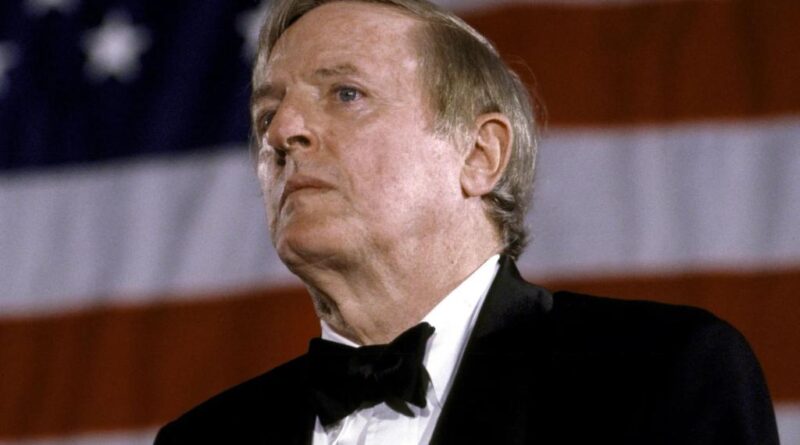PBS’s incorrect portrayal of William F. Buckley Jr.: The influential figure behind a movement

Picture creating a documentary about one of the prominent adversaries of the Ku Klux Klan in the 20th century — without addressing the malevolence of the KKK itself.
If this seems like a mistake, consider PBS’s recent documentary on the life of William F. Buckley Jr.
“The Incomparable Mr. Buckley,” part of the “American Masters” series, delves into anti-Communism but fails to acknowledge the brutal reality of Communism itself.
In neglecting this aspect, producer and director Barak Goodman inadvertently emphasizes why Buckley was essential in the first place — and why he remains so.
Despite the fact that Buckley passed away in 2008, with next year marking his centenary, the liberal dominance in America’s universities that Buckley confronted as a Yale student in the late 1940s persists unchanged.
Faculty and administrators still avoid discussing the evils originating from the left side of the political spectrum, from Communism to various violent groups claiming to act in the name of anti-colonialism.
The PBS documentary accurately portrays Buckley’s achievements but fails to grasp their significance.
In 1951, Buckley published his first book, “God and Man at Yale.”
Just four years later, before he turned 30, Buckley founded National Review, a publication that became a cornerstone of the emerging conservative movement.
He played a role in establishing other institutions, such as the conservative movement’s student activism group, Young Americans for Freedom.
Political figures like Barry Goldwater and Ronald Reagan found support and inspiration in the movement Buckley fostered.
After Goldwater’s defeat in the 1964 presidential election, Buckley lifted conservative spirits with his run for New York City mayor the following year.
While Buckley never expected to win his mayoral campaign — he quipped about demanding a recount if he did win — it taught conservatives how to engage urban Catholics and voters disillusioned with rising crime rates.
The Buckley coalition, established through his mayoral campaign, paved the way for the Nixon coalition that secured the White House in 1968 and 1972.
His mayoral bid propelled him into the media spotlight and led to a successful television career, adding to his roles as an author, editor, lecturer, and movement builder.
He even launched his own popular interview show, “Firing Line,” which aired for over three decades, primarily on PBS affiliates starting in 1966.
“The Incomparable Mr. Buckley” teases viewers with clips of Buckley’s interactions with guests on “Firing Line,” such as Norman Mailer and Allen Ginsberg.
However, the documentary hesitates to let Buckley speak for himself, interrupting his voice with historian voiceovers after just a few words from Buckley.
The filmmakers opt to focus on Buckley’s losses and missteps, like his 1965 debate defeat at Cambridge University and his emotional episode during the 1968 Democratic National Convention when he clashed with Gore Vidal on live TV.
Vidal goaded Buckley, leading to a contentious exchange where Buckley called Vidal a “queer” and threatened to “sock” him in the face if the abuse continued.
Vidal delighted in unsettling Buckley, viewing it as compelling television, while Buckley was left embarrassed by the incident.
However, the issue with “The Incomparable Mr. Buckley” lies in its failure to comprehend the core of Buckley’s life’s work.
When not depicting Buckley as suitable for “Lifestyles of the Rich and Famous,” the documentary and its hired historians promote the idea that Buckley was an aloof elitist who toyed with populist movements beyond his grasp.
The documentary concludes with imagery of Donald Trump and the 2021 Capitol riot.
Yet, it was elite liberals, not Buckley, who facilitated Trump’s rise.
Buckley’s establishments, particularly National Review, opposed Trump — but their opposition couldn’t counter the demand for Trump created by alienated voters.
By disregarding the lessons Buckley sought to impart and refusing to moderate their left-leaning biases in response to a well-articulated conservative critique, liberals in politics, media, and academia laid the groundwork for the emergence of populism.
From the Cold War to urban crime, they placed blame on America for every issue.
Decades after the collapse of the Berlin Wall, liberals portrayed Communism as an afterthought to McCarthyism, a perspective opposed to historical reality and Buckley’s legacy.
Daniel McCarthy is the editor of Modern Age.
Twitter: @ToryAnarchist



